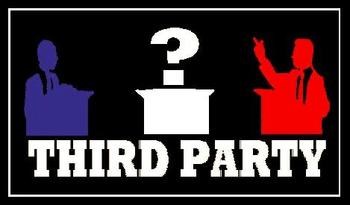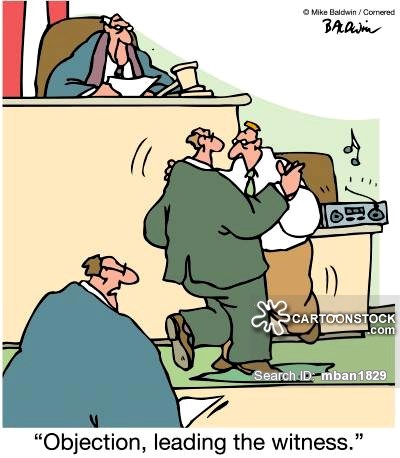Beneficiary Who Prepared Will and Substantially Benefits has a very heavy burden of proof
Cooke v Walsh 1965 (52) WWR 449 is a chestnut of a decision by former Chief Justice Wilson that deserves comment even 37 years later.
The deceased made a will shortly before she died when she was very ill.
The defendant Walsh prepared the will on as he put it the instructions of the deceased. No lawyer or independent advisor was involved..
The judge found that at the time Walsh was not merely an agent of the deceased but instead was a fiduciary in that he managed her apartment, collected or rents, and got her to sign necessary checks, as well as looking after her personal affairs.
After reading extensively reviewing the law the court found that the burden of proof imposed on the defendants to prove that the testatrix knew and approved of the contents of the will of the time of execution, was so grave that it might hardly be removed.
The court cited the following authorities of law relating to its decision:
- Kerr on Fraud, 7th ed., p. 429, says this:
If a person benefited by a will has himself prepared it, or procured it to be prepared, the law looks on the case with suspicion, and the Court requires clear and satisfactory proof that the testator knew and approved the contents of the instrument, and that it expressed his real intentions. {Baker v. Batt, [1838] 2 Moo PCC 317, at 320,12 ER 1026; Greville v. Tylee, [1851] 7 Moo PCC 320,13 E.R. 904; Re Harmes Estate; Harmes and Custodian of Enemy Property v. Hinkson, [1946] 2 W.W.R. 433,62 T.L.R. 445, affirming [1943] S.C.R. 61). If there be no evidence of instructions previously given, or knowledge of its contents, the party propounding it must prove by evidence of some description or other that the testator knew and approved of the instrument. (Barry v. Butlin, [1838] 2 Moo PCC 480, at 491, 12 ER 1089; Mitchell v. Thomas, [1847] 6 Moo PCC 137,13 E.R. 636; Vellasawmey Servai v. Sivaraman Servai (1929) 57 LR Ind App 96). The onus of proof may be increased by circumstances, such as unbounded confidence in the drawer of the will, extreme debility in the testator, clandestine and other circumstances, which may increase the presumption even so much as to be conclusive against the instrument. (Paske v. Ollat, [1815] 2 Phillim 323, at 324,161 ER 1158; Jones v. Godrich, [1845] 5 Moo PCC 16,13 E.R. 394; Greville v. Tylee; Ashwell v. Lomi, [1850] 2 LR P & D 477; Harmes v. Hinkson.)
Proof of knowledge of the contents of a will may be given in any form. The degree of proof depends on the circumstances of each case. Although in perfect capacity, knowledge of the contents will be inferred; yet where capacity is impaired, and the benefit of the drawer of the will large, the suspicion is strong, and the proof must be most stringent. Where the drawer of an instrument gives himself a benefit under the instrument, it is a case for suspicion, depending more or less upon the circumstances of each individual case, and the proof must be in proportion to the degree of suspicion, which of course will vary. {Paske v. Ollat; Harmes v. Hinkson.) The greater the benefit and the less the capacity the more stringent is the requirement of proof of knowledge of the contents. {Durnell v. Corfield, [1844] 1 Rob Eccl51,at63,163ER961.)
If a testator being of sound mind and capacity has read the will, there is, as a general rule, sufficient evidence to show that he knew and approved of its contents. {Atter v. Atkinson [1869] LR 1 P & D 665, 20 LT 404, 33 JP 440.) So, also, if a will has been read over to a capable testator on the occasion of its execution, or there is evidence to show that its contents have been brought to his notice in any other way, this fact when coupled with his execution thereof will, as a general rule, be sufficient to show that he approved as well as knew the contents thereof. {Guardhouse v. Blackburn, [1866] LR 1 P & D 109, at 116, 35 LJ P & M 116.) But circumstances may exist which may require that something further shall be done in the matter than the mere establishment of the fact of the testator having been a person of sound mind and capacity, and of his having had read over to him that which had been prepared for him, and which he executed as his will. There is no unyielding rule of law (especially when the ingredient of fraud enters into the case) that when it has been proved that a testator, competent in mind, has had a will read over to him, and has thereupon executed it, all further inquiry is shut out {Fulton v. Andrew [1875] LR 7 HL 448, at 469,44 UP 17).
The exercise of undue influence may be a ground for the interposition of the Court to set aside a will. Though a man may have a mind of sufficient soundness and discretion to manage his own affairs in general, still, if such a dominion or influence be obtained over him as to prevent his exercising that discretion in the making of a will, he cannot be considered as having such a disposing mind as will give it effect {Mountain v. Bennett, [1787] 1 Cox Eq Cas 353, at 355, 29 ER 1200).
In cases of weakness of mind, arising from the near approach of death or otherwise, strong evidence may be required that the contents of the will were known to and approved by the testator executing the will at such a time {Mitchell v. Thomas [supra]; Durnell v. Corfield [supra;), and that the execution was his spontaneous act {Tribe v. Tribe ([1849] 1 Rob Eccl 775,163 ER 1210,13 Jur 793).
When it has been proved that a will has been executed with due solemnities by a person of
competent understanding, and apparently a free agent, the burden of proving that it was
executed under undue influence rests on the party who alleges it {Boyse v. Rossborough;
Boyse v. Colclough, [1857] 6 HLC 2, at 49,10 ER 1192), or at least he must show facts
from which the Court would be justified in treating the circumstances attending the bounty
as suspicious.
Further, in order to set aside the will of a person of sound mind, it is not sufficient to show that the circumstances attending its execution are consistent with the hypothesis that it was obtained by undue influence; it must be shown that they are inconsistent with a contrary hypothesis {Boyse v. Rossborough; Boyse v. Colclough [supra], at p. 51).
The burden of proving that it was executed under undue influence is not discharged by showing merely that the beneficiary had the power unduly to overbear the will of the testator; it must be shown that in the particular case the power was exercised and that execution of the will was thereby obtained {Craig v. Lamoureux, [1919] 3 W.W.R. 1101, [1920] AC 349, 89 UPC 22, reversing 49 S.C.R. 305. As to the particulars that may be ordered see Re Shrewsbury [Earl] Estate; McLeod v. Shrewsbury [Earl] [1922] P 112, 91 UP 46).
- I have taken the unusual step of citing this long passage from a text book because, having looked at the authorities cited, I cannot better epitomize them.
- I suppose I should, since both were Privy Council decisions on Canadian appeals, pay particular regard to Re Harmes Estate; Harmes and Custodian of Enemy Property v. Hinkson, supra, and Craig v. Lamoureux, supra.
- Wintle v. Nye, [1959] 1 W.L.R. 284,103 Sol J 220, a decision of the House of Lords, is cited in Hanbury’s Modern Equity, 8th ed., p. 655 and, at p. 656, the learned author says that, as a result of that judgment “no sensible distinction between wills and transactions inter vivos can now be drawn.”
- I cite this passage from the opinion of the Lord Chancellor, Viscount Simonds, at p. 291:
My Lords, the relevant law is not, I think in doubt. It was, as the Court of Appeal were unanimously of opinion, correctly stated by the learned judge by reference in particular to the judgment of Parke, B. in Barry v. Butlin [supra], at 482. It is not the law that in no circumstances can a solicitor or other person who has prepared a will for a testator take a benefit under it. But that fact creates a suspicion that must be removed by the person propounding the will. In all cases the court must be vigilant and jealous. The degree of suspicion will vary with the circumstances of the case. It may be slight and easily dispelled. It may, on the other hand, be so grave that it can hardly be removed.
- I do not think this passage quarrels with the previous authorities I have mentioned. But a thing to be kept in mind in regard to Wintle v. Nye is that the House of Lords did not find undue influence, they found that the issue was this (Lord Simonds at p. 292): “What was in issue was whether she [the testatrix] understood and approved the contents of the will she executed.” On the facts they decided the case against the solicitor who had drawn and propounded the will and who was the chief beneficiary.
- The decision of the Supreme Court of Canada in Adams v. McBeath (1897) 27 S.C.R. 13, affirming 3 B.C.R. 513, citing Boyse v. Rossborough; Boyse v. Colclough, supra, at p. 49,
The Court held that the English rule of Wintle v Nye aforesaid had not been complied with and the very grave onus of proof the defendant faced, not met.
– See more at: http://www.disinherited.com/blog/beneficiary-who-prepared-will-and-substantially-benefits-has-very-heavy-burden-prove-will-valid#sthash.bQ72ZSSd.dpuf








